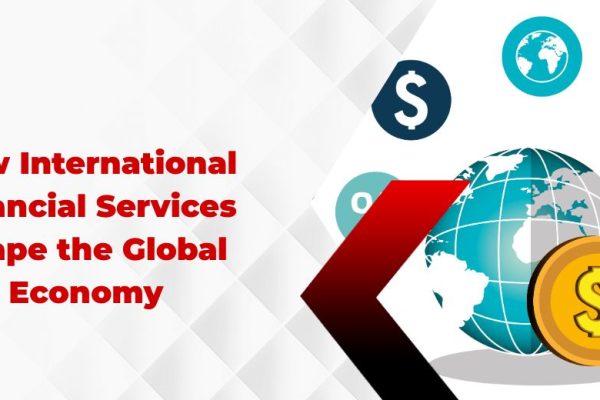Building Trust Through Financial Services Compliance & Auditing
Financial Services Compliance & Auditing is more than just paperwork and checklists. It’s the foundation that keeps financial institutions trustworthy, transparent, and aligned with constantly changing regulations.
Banks, insurance firms, fintech platforms, and investment companies all rely on well-structured compliance and audit strategies to stay ahead of regulatory shifts and market pressures.
Within the first few seconds of a regulatory audit, gaps in compliance can expose a company to massive financial and reputational risks.
This is why financial services compliance consultants and corporate financial audit services are becoming essential partners for modern organizations. But strategy matters. How you structure your compliance program determines whether you’re just keeping up or staying ahead.
Why Compliance & Auditing Matter in Financial Services
Financial institutions hold sensitive data, manage large sums of money, and operate under close regulatory oversight. Financial services compliance & auditing are what protect the entire system from breaking down.
Risk Mitigation
- Identifies and controls operational vulnerabilities
- Detects fraud early through internal checks
- Prevents violations that lead to fines or criminal liability
Trust & Reputation
- Builds confidence with customers, investors, and regulators
- Demonstrates operational transparency
- Reduces the likelihood of public scandals
Long-Term Stability
- A compliant financial institution is less likely to face disruption
- Easier to secure funding and expand internationally
- Positions the organization as a credible market player
Understanding the Core Elements of Financial Services Compliance
Regulatory Frameworks
Financial firms operate under a wide range of regulatory bodies, such as:
- SEC (U.S. Securities and Exchange Commission)
- FINRA (Financial Industry Regulatory Authority)
- OCC (Office of the Comptroller of the Currency)
- FCA (UK Financial Conduct Authority)
These bodies enforce strict standards around data protection, reporting, anti-money laundering (AML), and consumer protection.
Internal Controls
Strong internal controls keep systems stable. These controls may include:
- Segregation of duties
- Real-time transaction monitoring
- Access controls and encryption
- Automated alerts for suspicious activities
Certified Financial Services Auditors
Certified auditors play a crucial role in ensuring that compliance frameworks are effective. Their audits go beyond basic numbers:
- Evaluate the effectiveness of internal controls
- Check adherence to legal and regulatory standards
- Identify gaps and areas for improvement
Key Strategies to Stay Ahead in Compliance & Auditing
1. Automate and Centralize Compliance Functions
Manual tracking of compliance processes often leads to missed updates or inconsistent documentation. Using financial services compliant software can:
- Centralize data storage
- Streamline reporting workflows
- Automatically flag regulatory changes
This reduces human error and saves compliance teams countless hours.
2. Embed Compliance Into Everyday Operations
Compliance shouldn’t feel like a separate department. It should live in the day-to-day:
- Training staff regularly
- Making compliance part of KPIs
- Integrating controls into financial transactions themselves
Companies that view compliance as a dynamic process tend to adapt more quickly when regulations change.
3. Work With Financial Services Regulatory Consultants
Regulatory frameworks can be complex and subject to varying interpretations. Experienced financial services regulatory consultants bring:
- Deep understanding of local and global regulations
- Insights on how competitors structure their compliance
- Support in drafting policies and internal documentation
Their external perspective often reveals blind spots internal teams miss.
4. Strengthen Your Internal Audit Function
Internal auditing is not just about ticking boxes. It’s an early warning system.
A well-planned internal audit can:
- Catch control failures before they become public problems
- Identify inefficient workflows
- Improve the accuracy of financial reporting
5. Prioritize Data Protection and Cybersecurity
Regulators are focusing heavily on data handling. A solid compliance program includes:
- Encryption and secure data transfer
- Multifactor authentication
- Regular vulnerability assessments
Strong cybersecurity controls don’t just meet compliance—they protect the business from real harm.
Table: Core Compliance Activities and Their Strategic Impact
| Compliance Activity | Strategic Benefit | Responsible Stakeholders |
| Internal Audit Programs | Early issue detection, operational transparency | Internal Audit Team, CFO |
| Regulatory Monitoring | Reduced non-compliance risk | Compliance Department, Legal Counsel |
| Compliance Software Implementation | Efficient reporting, fewer manual errors | IT, Compliance, Risk Management |
| Employee Training Programs | Better awareness, fewer violations | HR, Compliance |
| Third-Party Compliance Consulting | Broader expertise, competitive advantage | Executive Team, External Advisors |
Integrating Technology Into Financial Compliance
Technology has changed how compliance functions operate. Compliance software for financial services can automate data collection, risk monitoring, and reporting with minimal manual input. Some areas where technology makes a difference:
- Real-time transaction monitoring systems that flag anomalies
- Cloud-based audit trails for regulatory review
- Digital KYC/AML systems to keep customer verification compliant
But tech is only as good as its configuration. Poorly set-up systems can give a false sense of security. That’s why many firms combine software with experienced financial services compliance consultants.
Building a Culture of Compliance
Even the best audit systems won’t work without people who understand why compliance matters. A strong compliance culture:
- Encourages employees to report irregularities
- Creates accountability across departments
- Reduces the likelihood of intentional or accidental violations
Tactics that work well:
- Interactive training instead of long manuals
- Rewarding compliance-friendly behavior
- Encouraging team leads to own compliance outcomes
Evolving Trends Shaping Financial Compliance
- RegTech Integration: More firms are adopting AI-powered tools for compliance tracking.
- Globalization of Standards: Cross-border operations require harmonized compliance programs.
- Real-Time Reporting: Regulators increasingly expect live or near-live compliance reporting.
- Privacy and ESG: New expectations surrounding data privacy and ethical business practices are reshaping the structure of compliance.
- Shift from Reactive to Preventive: Modern compliance teams focus on preventing issues, not just cleaning up afterward.
How Auditing Strengthens Regulatory Readiness
Audits are not just compliance checkpoints. They:
- Validate whether controls work as intended
- Give regulators confidence during inspections
- Reveal hidden risks in financial reporting
A certified financial services auditor can make the difference between a smooth regulatory review and months of remediation work.
Audit reports also help organizations communicate with investors and clients, showing that controls are reliable and trustworthy.
The Role of Third-Party Consultants in Compliance
Outsourcing some compliance functions to financial services regulatory consultants can:
- Provide an objective perspective
- Accelerate response to new regulations
- Offer specialized expertise for niche financial products
It’s not about replacing internal teams, but reinforcing them. Sometimes, external auditors see risks long before they escalate internally.
Common Compliance Challenges and How to Handle Them
- Regulation Overload: Laws keep changing. Technology helps track updates automatically.
- Siloed Departments: Poor communication between finance, compliance, and operations causes gaps. A shared system fixes this.
- Lack of Training: Regular workshops keep teams aligned.
- Inconsistent Documentation: Automated audit trails make reporting cleaner.
- Resource Constraints: Strategic partnerships with external experts can fill skill gaps.
FAQs
Q1: What is the main purpose of Financial Services Compliance & Auditing?
The primary purpose is to ensure financial institutions follow laws, prevent fraud, protect consumer data, and maintain market trust.
Q2: How does compliance software for financial services help organizations?
It automates monitoring and reporting, reduces manual errors, and ensures consistent documentation during regulatory reviews.
Q3: Who can conduct certified financial services audits?
A certified financial services auditor or qualified audit firm can perform these audits, depending on regulatory requirements.
Q4: How often should companies perform corporate financial audit services?
Regular internal audits are recommended quarterly, with annual or semi-annual external audits for higher assurance.
Q5: Why should businesses hire financial services compliance consultants?
Consultants bring specialized knowledge, help interpret complex regulations, and provide practical solutions to strengthen compliance programs.
Conclusion
Financial Services Compliance & Auditing isn’t a static checklist. It’s a living system that evolves as regulations, technology, and market conditions shift. Companies that treat compliance as a strategic asset, not a burden, are the ones that build trust, grow sustainably, and avoid costly legal trouble.
Focusing on strong internal controls, smart technology, and expert support through financial services compliance consultants or auditors will keep your business one step ahead.
If your organization wants to strengthen its compliance and auditing strategy, Suits Consultants can help. Our team works with financial institutions to implement smart compliance programs, audit frameworks, and software solutions that actually work in the real world not just on paper.






